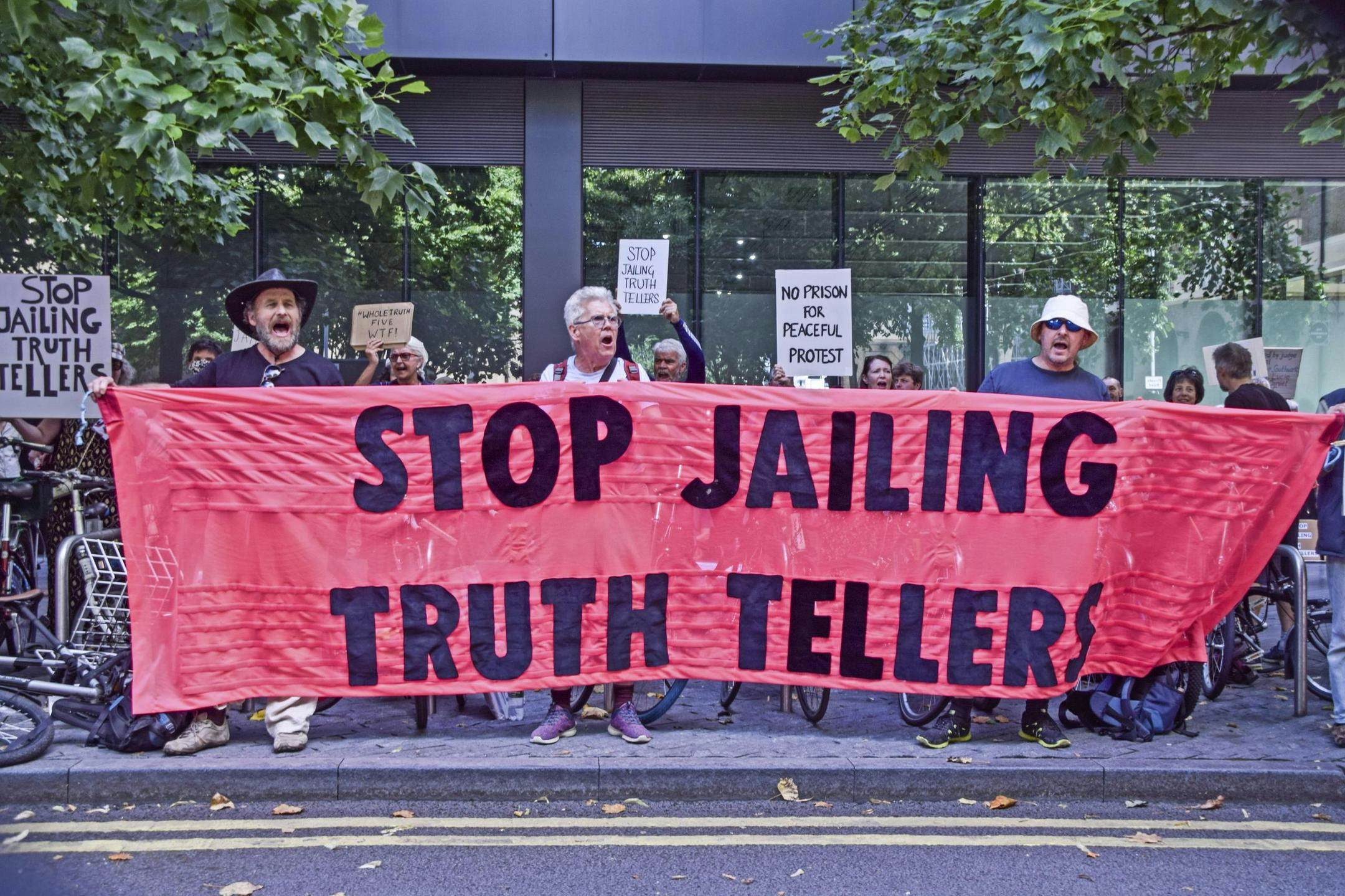This article is taken from the August-September 2025 issue of The Critic. To get the full magazine why not subscribe? Right now we’re offering five issues for just £25.
It is never a hardship, indeed it is our bounden duty, to recall the bitter wisdom of Auberon Waugh. How we could do with his waspish tongue today and watch the grabbers at life’s table tremble. The peer of the realm, for instance, who committed a sexual indiscretion that landed him in the soup: “From now on,” wrote Waugh, “let us call him ‘Lord Disgusting’.”
Future historians, he wrote, would look back at post-war British life and wonder why the middle class held such a morbid death wish. He might have been thinking of Radio 4, the natural habitat of small-c conservative, small-c concerned listeners, who can never quite clear the hurdle of moral purity designed by the people who make programmes on their behalf.
Take Crossing the Line, for instance, which offered a profile of Louise Lancaster that came within nodding distance of an apologia. Mrs Lancaster was sent down for four years, reduced on appeal to three, for … well, for being a persistent nuisance. If there was an ecological protest within 100 miles of her Cambridge home, this climate change activist found it.
“She cares very much,” said her ex-husband, Tim, as contributors explained the 50 “actions” his wife had attended. No wonder their marriage fell apart. Rather like the 83-year-old lady vicar carted away from the Palestinian march in London, Louise Lancaster is on the side of the angels.
Originally a teacher from Grantchester, where Rupert Brooke noted the time of day on the village clock, she wears a cloak of unimpeachable virtue that is not necessarily visible to all.
Yet Radio 4 cleared the decks for the reporter-narrator, Patrick Steel, who has spent a few years on her case. He investigated how this symbol of “Middle England” had, in the words of the judge who sentenced her and others, “crossed the line from concerned campaigner to fanatic”.
Friends rallied round. “She’s always thinking of other people,” said one — though not perhaps the tens of thousands of people whose journey to work was disrupted by the protest on the M25, as the activists shinned up gantries to tell them where they were all going wrong.
Like a tribute band, they rolled out the old hits with every breath. “Fighting injustice!” “Compassionate resistance!” Steel revealed Lancaster had got a tattoo of an egg-timer on her neck, “a marker of grit and determination”. That’s certainly something to talk about at those Christmas parties in Grantchester, where, a neighbour confirmed, “she would always bring a pudding”.

She had been arrested more than 20 times before the judge decided she had entertained us long enough. So off she toddled, a prisoner of conscience, “so positive, so sincere”, in the words of a friend who waved a tear-stained hankie.
But surely that “sincerity” — a human quality used by sympathisers to justify anything — is a big part of the problem. One thought of Tom Stoppard’s line about having the courage to lack convictions.
The only dissenting voice, and a mild one at that, belonged to her father, who imagined wistfully that his daughter “might be a chess prodigy”.
The all-purpose activist is the kind of person Radio 4 producers have in mind when they commission people like Steel to make programmes. Well-meaning, compassionate, kind. Some are. Some are not. We are all familiar with liberals whose tolerance is fraudulent.
It’s difficult to see the programme-makers offering a shoulder for supporters of Lucy Connolly to cry on. Whatever one thinks of the response to the Southport murders, and there are arguments on both sides, Connolly’s 31-month sentence is not the kind of thing that concerns folk in Broadcasting House.
In his presentation of Carpenter’s story, Steel referred disobligingly to the Daily Mail and the Sun, which had spelled out the financial consequences of Just Stop Oil’s M25 protest. It was a reasonable point to raise. Those activists were not big-hearted protesters to the motorists trying to go about their daily business. They were bullies.
Time and again Radio 4 flatters the Lancasters of this world and patronises the Connollys. As Andrew Marr has said, the bias within the BBC is covert. It’s a matter of tone, an assumption of shared attitudes. Crossing the Line made his point rather well.
On Radio 3, meanwhile, the in-house ads grow like topsy: about three an hour, on any given day. The afternoon concert slot carried several plugs for the UEFA European women’s football championship, full of breathless press box clichés.
Turn it round. Try to imagine a taster for a recital at Wigmore Hall thrust into coverage of a sporting event on Five Live. Radio 3 is being transformed in a manner that bewilders regular listeners, and Sam Jackson, the controller, could not be happier. That “Wimbledon Prom” can only be a season or two away.











